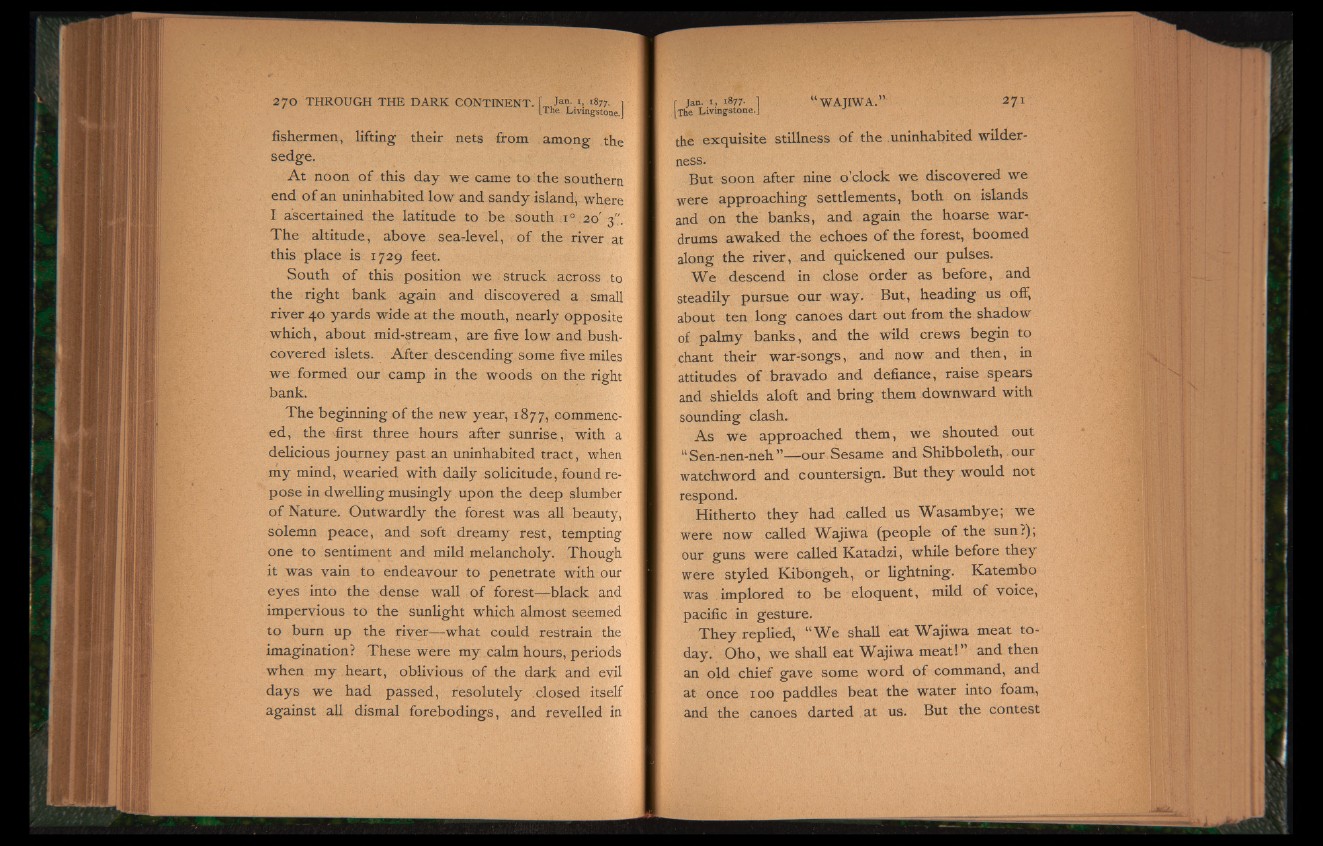
fishermen, lifting their nets from among the
sedge.
At noon of this day we came to the southern
end of an uninhabited low and sandy island, where
I ascertained the latitude to be south i° 20' 3".
The altitude, above sea-level, of the river at
this place is 1729 feet.
South of this position we struck across to
the right bank again and discovered a small
river 40 yards wide at the mouth, nearly opposite
which, about mid-stream, are five low and bush-
covered islets. After descending some five miles
we formed our camp in the woods on the right
bank.
The beginning of the new year, 1877, commenced,
the -first three hours after sunrise , with a
delicious journey past an uninhabited tract, when
my mind, wearied with daily solicitude, found repose
in dwelling musingly upon the deep slumber
of Nature. Outwardly the forest was all beauty,
solemn peace, and soft dreamy rest, tempting
one to sentiment and mild melancholy. Though
it was vain to endeavour to penetrate with our
eyes into the dense wall of forest— black and
impervious to the sunlight which almost seemed
to burn up the river— what could restrain the
imagination? These were my calm hours, periods
when my heart, oblivious of the dark and evil
days we had passed, resolutely closed itself
against all dismal forebodings, and revelled in
the exquisite stillness of the .uninhabited wilderness.
But soon after nine o’clock we discovered we
were approaching settlements, both on islands
and on the banks, and again the hoarse war-
drums awaked the echoes of the forest, boomed
along the river, and quickened our pulses.
We descend in close order as before, and
steadily pursue our way. But, heading us off,
about ten long canoes dart out from the shadow
of palmy banks, and the wild crews begin to
chant their war-songs, and now and then, in
attitudes of bravado and defiance, raise spears
and shields aloft and bring them downward with
sounding clash.
As we approached them, we shouted out
“ Sen-nen-neh ”— our Sesame and Shibboleth, our
watchword and countersign. But they would not
respond.
Hitherto they had called us Wasambye; we
were now called Wajiwa (people of the sun?);
our guns were called Katadzi, while before they
were styled Kibongeh, or lightning. Katembo
was implored to be eloquent, mild of voice,
pacific in gesture.
They replied, “ W^e shall eat Wajiwa meat today.
Oho, we shall eat Wajiwa meat!” and then
an old chief gave some word of command, and
at once i oo paddles beat the water into foam,
and the canoes darted at us. But the contest